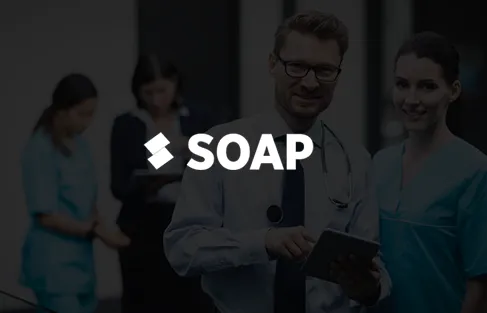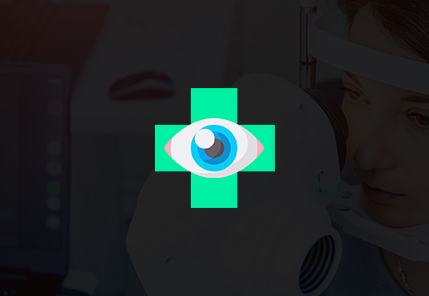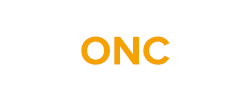Trusted by:
Turnkey revenue cycle management solutions for various healthcare organizations:
Custom Billing Software
Enhance the existing functionalities of your standalone billing software or build one from scratch with us. Get comprehensive insights into the financial status of your healthcare practices, enable better claim tracking, and streamline collection processes.
Healthcare IT Consulting Services
Implement advanced technologies, ensure compliance, and streamline workflows through expert IT consulting. The RCM solutions we develop focus on both administrative and clinical aspects to help you navigate the complexities of the healthcare landscape, ultimately leading to improved revenue cycles and enhanced patient outcomes.
Custom Healthcare Information Exchange Solutions
Facilitate seamless sharing of patient information across various systems, improve interoperability, and ensure real-time access to accurate patient data. Know how you can reduce administrative delays, streamline claims processing, and minimize errors that can lead to claim denials with the help of our HIE experts.
Analytics and Reporting Tools
Take advantage of advanced analytics platforms and tools and get in-depth financial reporting and operational insights. Identify revenue opportunities, assess performance metrics, and make strategic decisions to improve financial health.
Key features and capabilities that can be integrated into RCM solutions for healthcare:
Explore essential features that can be integrated into RCM solutions to optimize revenue cycle management, improve operational efficiency, and ensure timely reimbursements in healthcare settings
-
Patient Registration and Verification
-
Claims Management
-
Insurance Verification
-
Payment Processing
-
Automated Billing and Coding
-
Analytics and Reporting
-
Compliance Management
-
Third-Party Integrations
-
Patient Engagement Tools
-
Workflow Optimization
-
Coding & Documentation
-
Patient Billing & Collections
-
Training & Support
-
Vendor Management
Selected success stories of revenue cycle management services

Developing a custom hospital information system (HIS) for Maharaja Agrasen Medical College
Read More >
EHR modernization for SOAP Health, a leading healthcare platform in the United States
Read More >
Developing a comprehensive EHR system for the largest eye care group in the United States
Read More >Empower your healthcare organization to achieve financial success and better patient outcomes with RCM solutions
Driving RCM success for hospitals, healthcare specialties, and organizations through:

Meet all quality standards and compliance in your healthcare software
Our Customized RCM Solutions for Healthcare strictly adhere to medical standards and compliances. Data security is the cornerstone of our software solutions. Our policies ensure data interoperability and secure electronic access. We are compliant with standards for the exchange, integration, sharing, and retrieval of electronic health information. We also follow international standards to transmit, store, retrieve, print, process, and display medical imaging information.
◉ Adherence with Healthcare Standards such as HIPAA, HL7, FHIR, CDA, DICOM, etc.
◉ Compliance with ISO 9001:2015 certifications
◉ Expertise in Medical terms usage (SNOMED)
Transform your revenue cycle with our tailored RCM solutions
Challenges we help you overcome with RCM solutions:
Claims Denials
Claim denials that happen due to incorrect coding or incomplete or incorrect information can impact both the provider and the patient. We can help healthcare practices and institutions automate the claims submission process and provide real-time feedback to coding staff in case of any error. These systems help minimize loss, improve approval rates, and ensure that higher number of claims are paid in one go.
Cash Flow Issues
A lot of healthcare organizations face cash flow challenges, which can affect their ability to meet operational expenses. Cloud RCM solutions can optimize their billing cycles and implement electronic payment options, that can accelerate the time between service delivery and payment. This will not only improve cash flow but will also create a more stable financial environment.
Compliance Challenges
Keeping an eye on the ever-evolving healthcare compliance landscape can be a tricky task for organizations. This is where compliance consulting helps. Keep your organizations updated with required standards and regulations like HIPAA, ONC, GDPR etc. and ensure that the billing practices, insurance processes, payments etc. align with current laws, reducing any chances of fines and legal issues.
Patient Financial Responsibility
The collection of patient financial responsibility can be a challenge for hospitals. Healthcare RCM solutions offer clear estimates of financial obligations that are shared with the patients before services are rendered. Alongside this, multiple flexible payment options are offered to the patients. We focus on keeping patients informed about their bills, which leads to improved collection rates.
Inefficient Data Management
Inefficient data management can cause errors and lead to missed revenue opportunities. Through revenue cycle management solutions you can centralize data for better accuracy in coding as well as billing. Have our team leverage RCM and help you utilize analytics to identify trends and make informed strategic decisions.
Billing Inefficiencies
Manual billing processes can be tedious, cause delays, and increase the cost of administration. With revenue cycle management solutions, you can leverage the features of automated billing workflows that help reduce human error and speed up the revenue cycle. Further, integration with electronic health records (EHRs) and other platforms can ensure accurate billing based on documented services, leading to enhanced efficiency and performance.
Revenue Leakage
Revenue leakage occurs when potential income is lost due to gaps in the revenue cycle. RCM solutions spot and address these gaps proactively such as unbilled services or uncollected co-pays. This ensures that all services provided are captured and billed accurately, on-time, and without error – thereby maximizing the revenue potential and reducing chances of revenue leakage.
How we help healthcare establishments through revenue cycle management solutions:

Streamlined Patient Information
Gather accurate patient data such as demographics, contact details, medical histories, etc. with the healthcare RCM solutions we develop. This further helps to facilitate seamless patient registration, verify insurance coverage, and reduce any chances of claim denials or delays.

Prior Authorization
Automate the process of securing prior authorizations and approvals on health care plans with our medical rcm solutions. This reduces the chances of costly denials and improves overall patient experience by minimizing unexpected costs.

Task Management
Track claims through their lifecycle, tackle any outstanding issues, and manage payment collections systematically, leveraging comprehensive revenue cycle management solutions. Additionally, implement automated reminders to ensure that no claim is denied and cash flow is maintained.

Tracking Analytics
Monitor KPIs related to revenue cycle. With access to comprehensive data on claims processing times, denial rates, and patient payment behaviors, healthcare providers can uncover trends, identify inefficiencies, and suggest and implement targeted strategies for improvement.
Maximize revenue and minimize administrative burdens with RCM solutions
As per research by Market & Market, the global revenue cycle management (RCM) market growth is forecasted to grow from USD 49.6 billion in 2023 to USD 84.1 billion by 2028, at a CAGR of 11.1%.
This significant growth highlights the increasing need to manage unstructured healthcare data. Also, healthcare organizations face several unique challenges such as frequent regulations and technical advancements – especially in the area of financial operations. Whether it’s registration, claims submission, denials, or collections – our comprehensive revenue management solutions for healthcare ensure that your practice operates efficiently, manages data seamlessly, and delivers quality care at all times.
With a focus on seamless healthcare platforms and third-party integrations, the solutions we develop streamline workflows and optimize processes, allowing your team to concentrate on patients. Leverage the vast capabilities of RCM for healthcare and maximize revenue, reduce administrative burdens, and achieve financial sustainability in an ever-evolving healthcare landscape with us!

Innovation redefined
We create agile and adaptable RCM solutions for healthcare to help you enhance operational efficiency and optimize your revenue cycle.
Watch the video.
Why Daffodil Software
Recognized excellence, proven customer satisfaction
Categorized as an aspirant in global PEAK Matrix assessment
Recommended vendor for custom software development services
Mentioned as a company to watch in the AI space
Categorized as a leader in digital engineering services
25+
years of software engineering excellence
150+
global clientele
4.8
Avg CSAT score
95%
customer retention rate
Optimize your revenue cycle and improve practice efficiency with us!
Sign up for a 30 min no-obligation
strategic session with us
- Validation of your project idea/ scope of your project
- Actionable insights on which technology would suit your requirements
- Industry specific best practices that can be applied to your project
- Implementation and engagement plan of action
- Ballpark estimate and time-frame for development
Frequently Asked Questions (FAQs)
Revenue Cycle Management or RCM services in healthcare are a comprehensive suite of processes that are designed to manage the financial operations of any healthcare organization, practice or institution. These services optimize the entire revenue cycle – right from patient registration to patient financial responsibility to payment collection. This ensures that healthcare providers can focus on delivering quality care to their patients while maximizing their financial performance.
Key components of RCM services include:
◉ Patient Registration: This is where patient information is captured and verified, such as insurance details, eligibility etc.
◉ Scheduling & Appointment: RCM here works to efficiently manage patient appointments and reduce no-shows to enhance provider availability.
◉ Pre-authorization: This stage involves securing necessary authorizations before the services are provided to the patients in order to minimize any claim denials later on.
◉ Clinical Documentation: Here, the documenting of patient encounters and coding services takes place.
◉ Claims Submission & Management: All claims are prepared and submitted to insurance payers for reimbursement. This step also includes tracking claims, managing denials, and following up on unpaid claims to ensure timely closures.
◉ Payment Processing: This stage caters to handling patient payments and reconciling insurance reimbursements.
◉ Financial Reporting and Analytics: Get insights into revenue trends and operational efficiency through financial reporting.
◉ Patient Billing and Collections: RCM solutions also help to manage patient billing and collections processes.
◉ Compliance Management: Ensuring adherence to healthcare regulations and payer requirements is also a part of RCM solutions
The return on investment (ROI) of implementing an RCM solution can be significant. RCM solutions not only help to optimize revenue but also reduce operational costs, and improve cash flow. This way, organizations can save huge, expect quicker payment cycles, and decrease the claim denial chances – making them confident healthcare providers in a better financial position.
Healthcare organizations should evaluate RCM solutions based on their specific needs and requirements. This includes integration capabilities these solutions offer, such as with existing systems i.e. EHRs and other third-party platforms.
Whether the RCM solution you are opting for offers scalability, automation, customer support, compliance-friendly features, post-implementation training, and the ability to track and offer detailed analytics – is also crucial.
Conducting thorough vendor assessments, checking past works, and seeking feedback from other healthcare providers will also help to select the right solution provider.


























